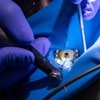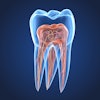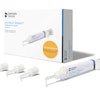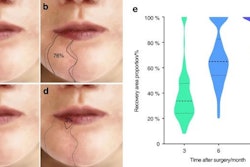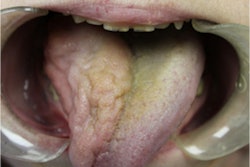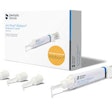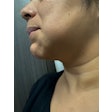
Patients with irreversible pulpitis may experience greater anesthetic effectiveness from inferior alveolar nerve blocks if they are given anti-inflammatories prior to endodontic treatment, according to a recently published study in the Journal of Endodontics.
The anesthetic efficacy of an inferior alveolar nerve block increased when patients were given oral doses of the nonsteroidal anti-inflammatory drug ketorolac, the corticosteroid dexamethasone, or the steroid prednisolone compared to a placebo. However, there was no significant difference in pain intensity during access opening or instrumentation in patients who were premedicated with one of the medications and those who were given placebos, the authors wrote (J Endod, January 31, 2023).
"The preoperative administration of ketorolac, dexamethasone, or prednisolone may improve the anesthetic success of inferior alveolar nerve blocks in mandibular molars with symptomatic irreversible pulpitis," wrote the authors, led by Dr. Frank Setzer, PhD, MS, of the department of endodontics at the University of Pennsylvania School of Dental Medicine in Philadelphia.
A challenging clinical situation
It's difficult to achieve adequate pulpal anesthesia in teeth, specifically those in the posterior mandible, with symptomatic irreversible pulpitis. Though inferior alveolar nerve blocks are the anesthetic technique of choice for lower jaw molars, its failure in teeth with irreversible pulpitis ranges from 43% to 83%. A possible reason for failure may be the sensitization of peripheral nociceptors by inflammatory mediators.
To explore the anesthetic success of inferior alveolar nerve blocks with 2% lidocaine in mandibular molars with symptomatic irreversible pulpitis after doses of prednisolone, dexamethasone, or ketorolac compared to a placebo, a randomized double-blinded trial was conducted in 184 patients. The participants were divided into four groups, with 46 patients in each group.
The patients received the medications 60 minutes before the inferior alveolar nerve blocks were administered. Clinicians began preparing patients' cavities after successfully confirming lip numbness and two consecutive negative responses to electric pulp testing. When pain was absent during endodontic access or instrumentation, the success of anesthesia was confirmed, according to the study.
Patients who took the medications before their root canal procedures experienced increased anesthetic efficacy of inferior alveolar nerve blocks, the authors wrote.
| Success rate of inferior alveolar nerve block | |
| Medication groups | Success rate |
| Ketorolac | 65% (30) |
| Dexamethasone | 61% (28) |
| Prednisolone | 57% (26) |
| Placebo | 22% (10) |
The success rate of the nerve block in the premeditated patients was significantly better than those in the placebo group (p < 0.0083), according to the study authors.
However, there was no significant difference between those medicated before the procedure and those in the placebo group in terms of pain intensity during access opening or instrumentation. The patients perceived only mild pain, scoring less than three on the visual analog scale, they wrote.
The only limitation noted was that the patients included in the study were diagnosed with symptomatic irreversible pulpitis in mandibular molars. In the future, studies should focus on mandibular premolars, various medication doses, and varying time intervals between medication administration and the beginning of the procedure, the authors wrote.
Reaching full anesthetic efficacy
Though preoperative use of the medications may increase the anesthetic efficacy of inferior alveolar nerve blocks in mandibular molars with symptomatic irreversible pulpitis, Setzer and colleagues recognized that a 100% success rate was not reached.
"To achieve an adequate anesthetic success rate, supplemental injection techniques, such as buccal infiltration or intraosseous anesthesia, may be required," they wrote.

